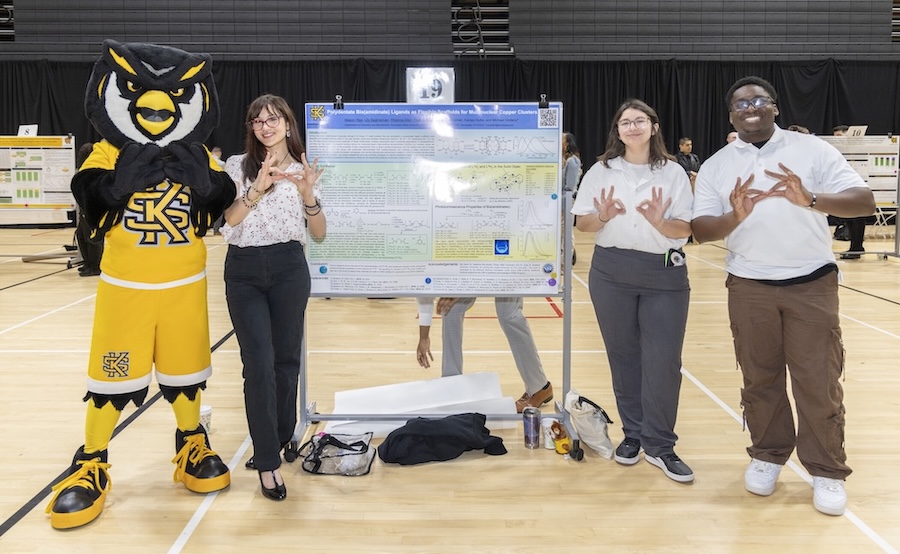|
Undergraduate Students: Alaina McClelland & Ari Schwartz
Research Mentor: Premila Achar
College: College of Science and Mathematics
Q: How would you explain your project to someone knows nothing about your field of study?
A: Peanuts are an important part of our diet, from peanut butter and snacks to desserts and cooking oils. Georgia produces a large portion of the peanuts grown in the southeastern U.S., so keeping these crops safe is a big deal. Unfortunately, peanuts are often contaminated by a dangerous fungus called Aspergillus flavus, which produces aflatoxin B1, a toxin that can cause liver damage and cancer in humans and animals. This contamination also causes significant economic losses in the peanut industry, up to $25 million annually in the U.S. alone.
Current control methods rely on synthetic fungicides, which can be harmful to the
environment and human health. My research focused on testing natural alternatives:
clove and cinnamon essential oils (EOs). We wanted to see if these plant-based oils,
alone or in combination, could reduce fungal growth and aflatoxin production in peanuts.
We found that the combination of clove and cinnamon was the most effective, showing
that natural, food-safe products could be used as an alternative to chemical fungicides.
Q: What inspired you to pursue this project? Do you have a personal connection to
it?
A: Ever since high school, I’ve been interested in research because I wanted to explore questions that could make a real difference in the world. During the summer of 2024, I took a mycology class with Dr. Premila Achar, and I was fascinated by the complexity and impact of fungi, both their incredible abilities and the risks they pose. After the class, I reached out to Dr. Achar about joining a research project under her, and she connected me with my lab partners, who helped introduce me to the many lab procedures and etiquette.
When I first started, I didn’t realize the full impact of this project, but learning about how A. flavus affects human health and the peanut industry made me connect with it immediately. This project challenged me to be more accountable, persistent, open-minded, and teachable. While I didn’t have a strong personal connection at the start, this experience has made my first research project unforgettable.
Q: What is the main takeaway from your project?
A: The main takeaway is that combining clove and cinnamon essential oils is more effective
than using either oil alone to reduce A. flavus growth and aflatoxin B1 contamination
in peanuts. This demonstrates the potential of plant-based, GRAS-status alternatives
to synthetic fungicides as a sustainable and food-safe solution.
Q: Were there any surprises or lessons learned along the way?
A: This project came with many challenges. In Fall 2024, I initially conducted research on fungal mycelium instead of peanuts, and I didn’t get the results I hoped for. I learned how important it is to refine methodology to improve outcomes. Despite early setbacks, I presented my work at the Spring Symposium at KSU and the International Association for Food Protection Conference, sharing what went wrong and how I planned to improve.
In Spring 2025, I continued my research on peanuts, but the first LC-MS analysis gave no results. It was discouraging, but I remembered that research involves trial and error. I repeated the methodology, and the second attempt produced excellent results. This taught me the value of persistence, learning from mistakes, and never giving up, lessons I will carry with me throughout my career.
|


